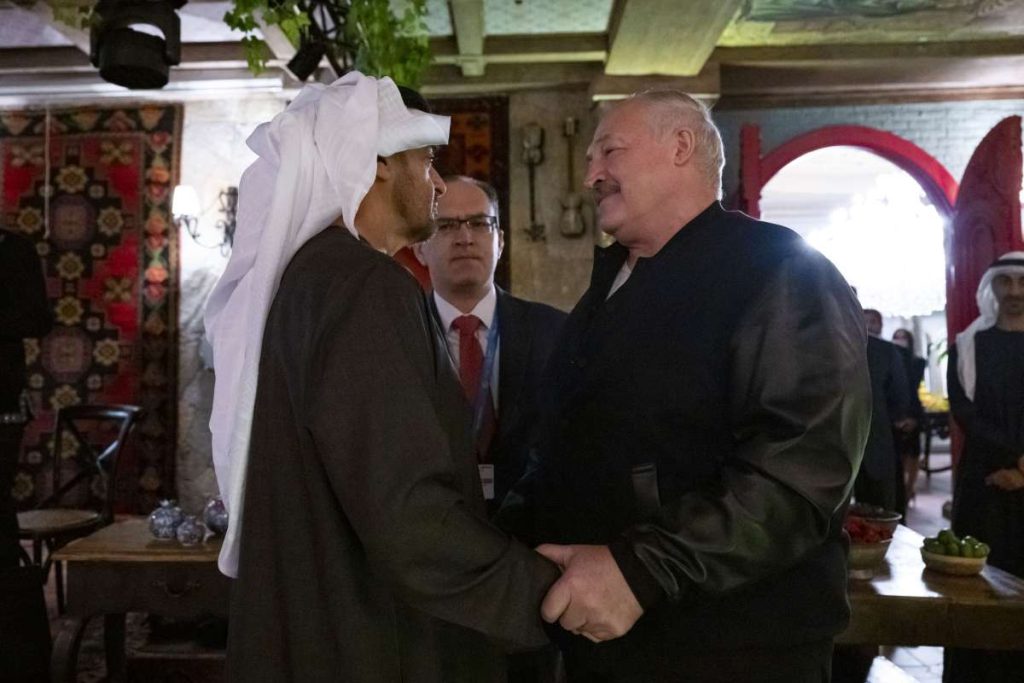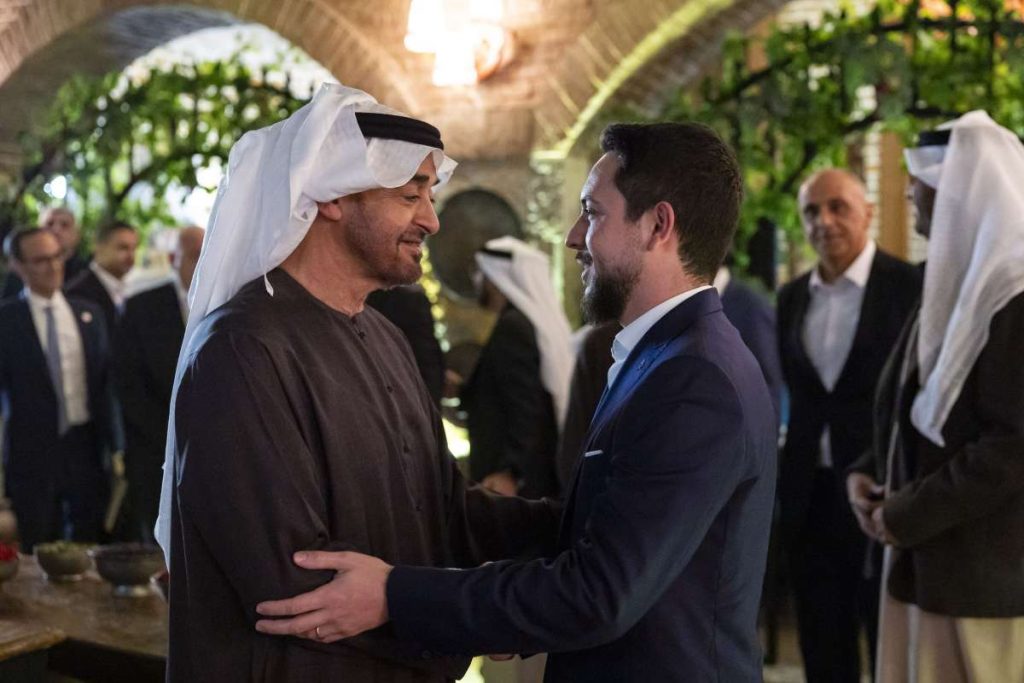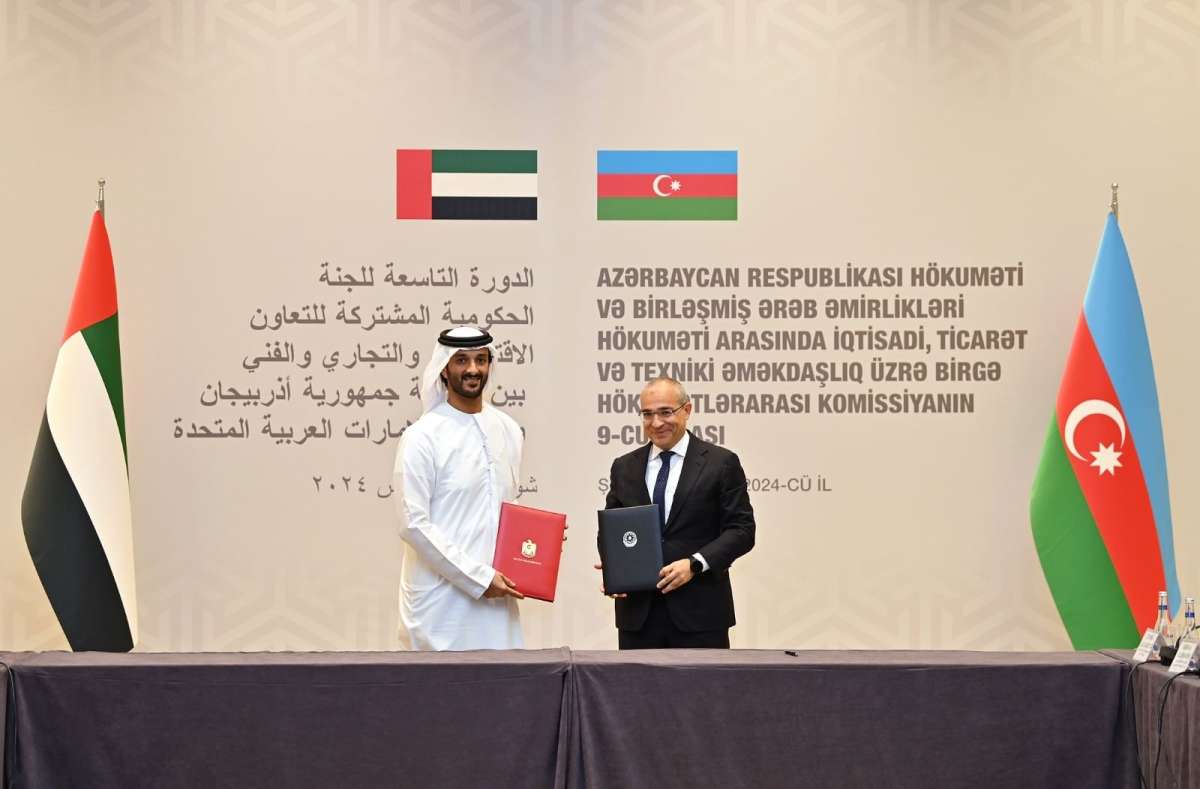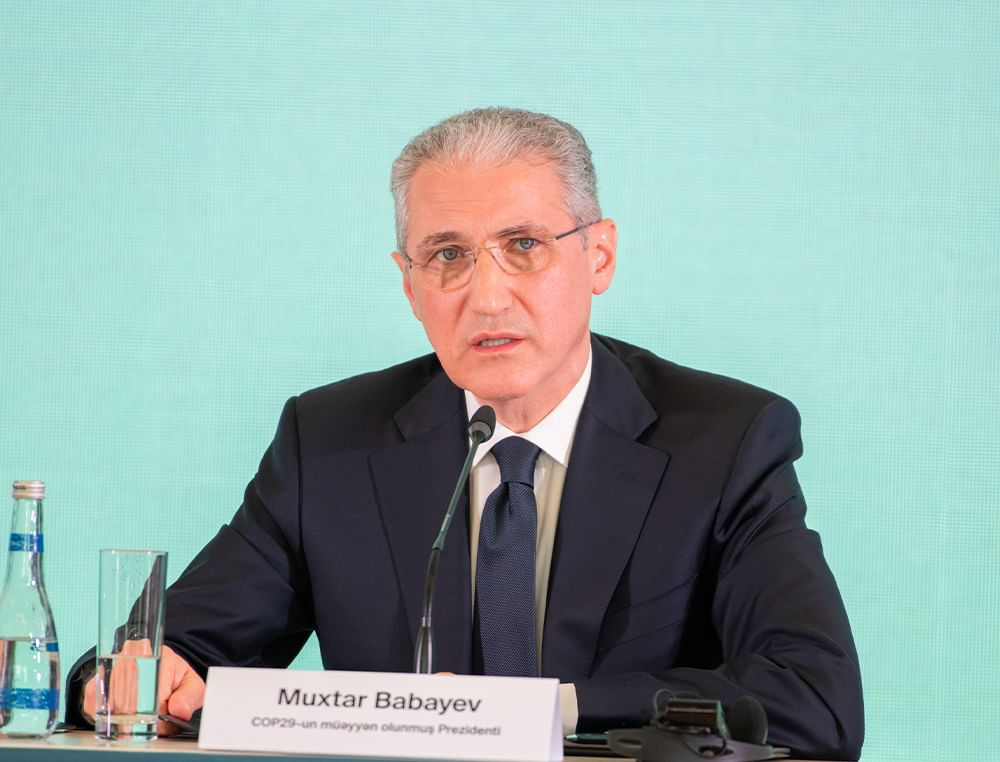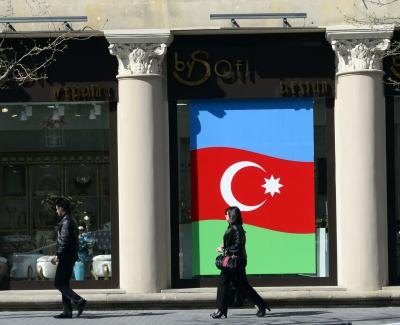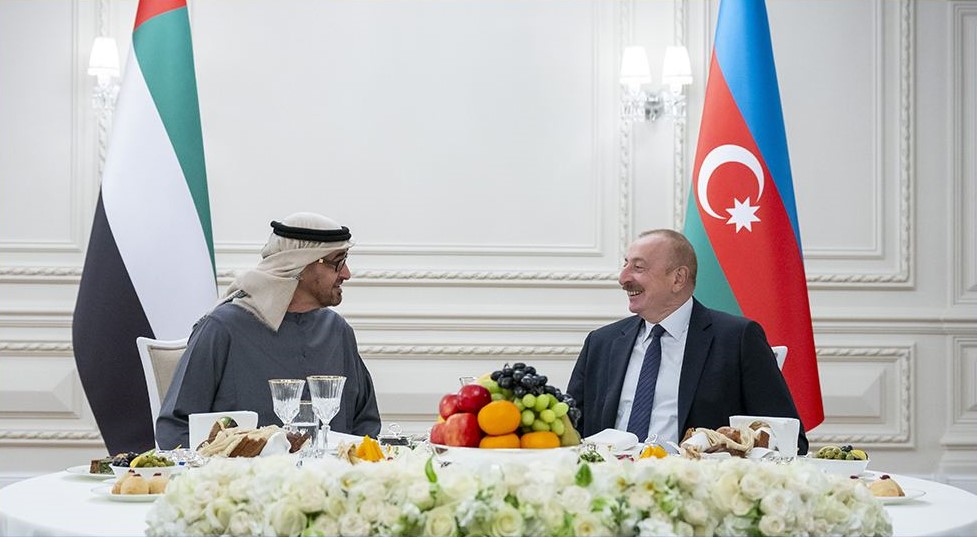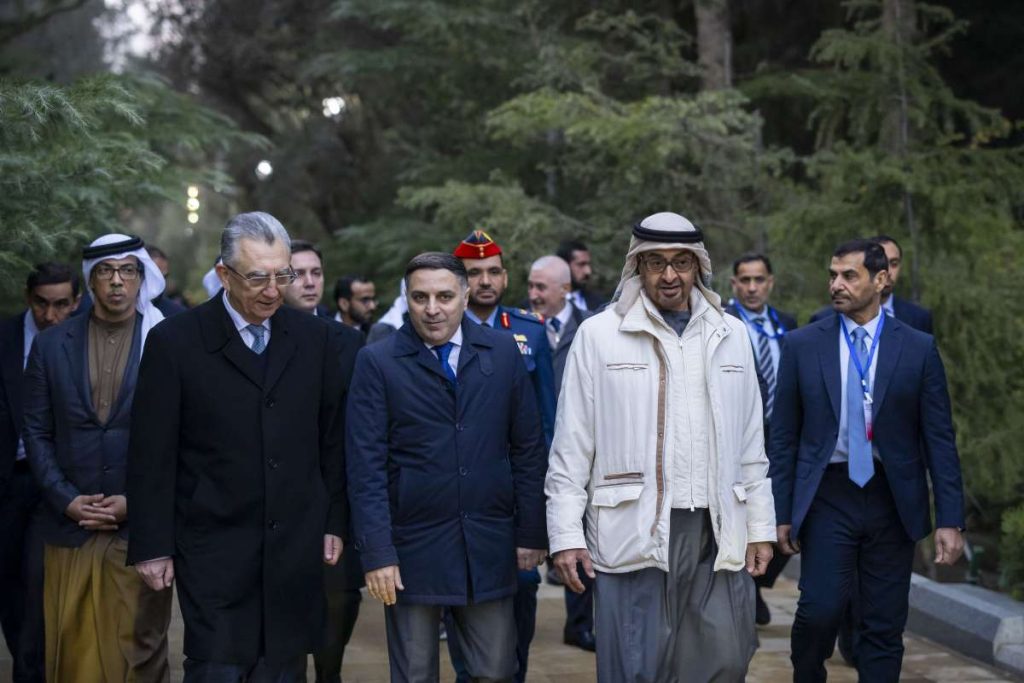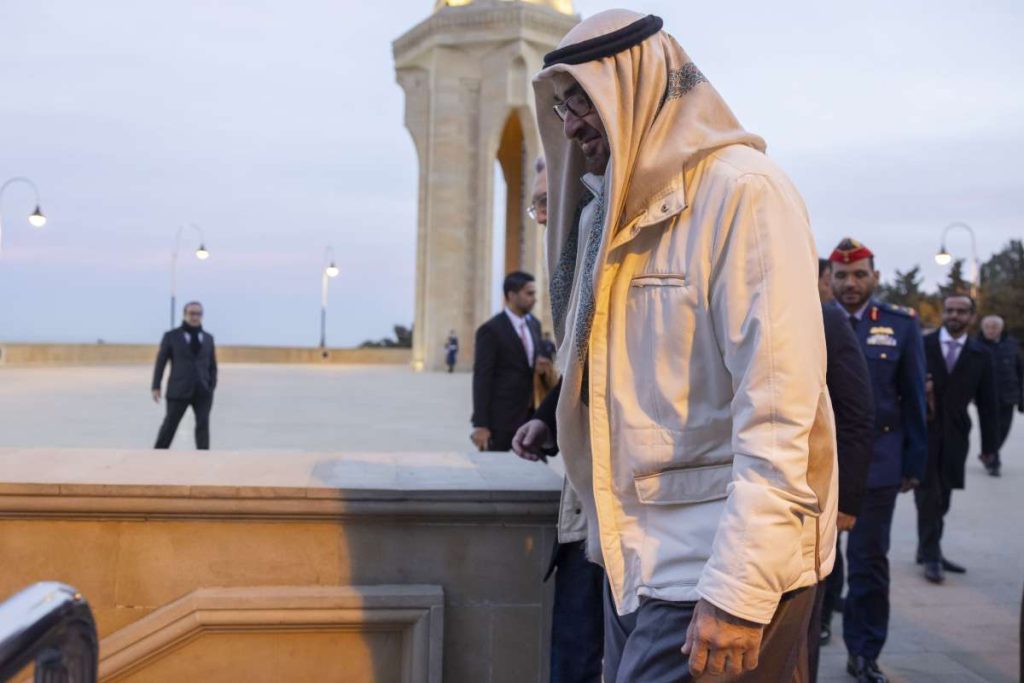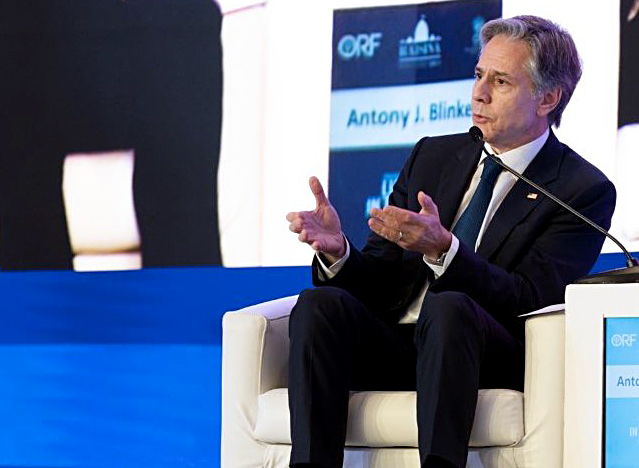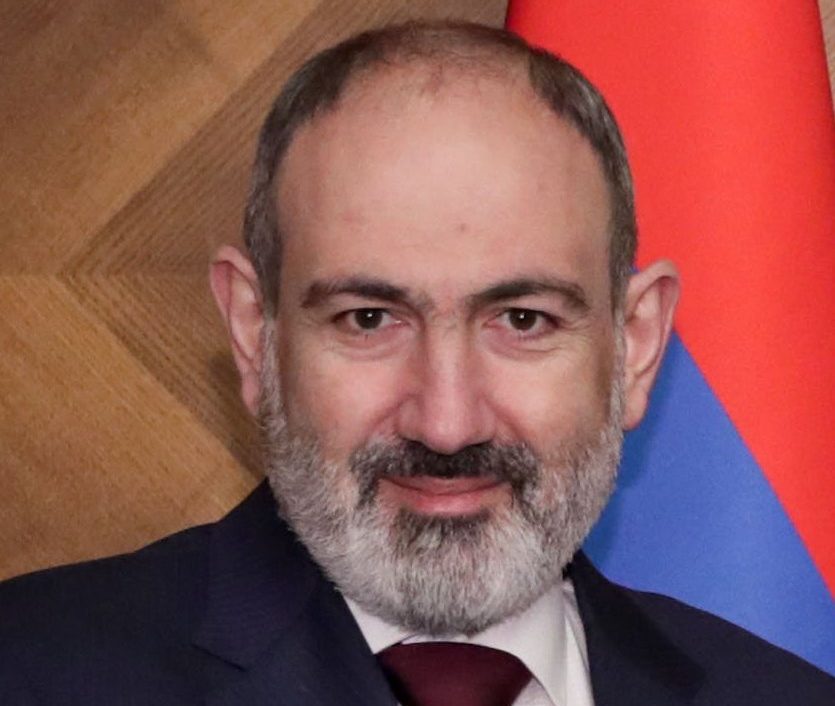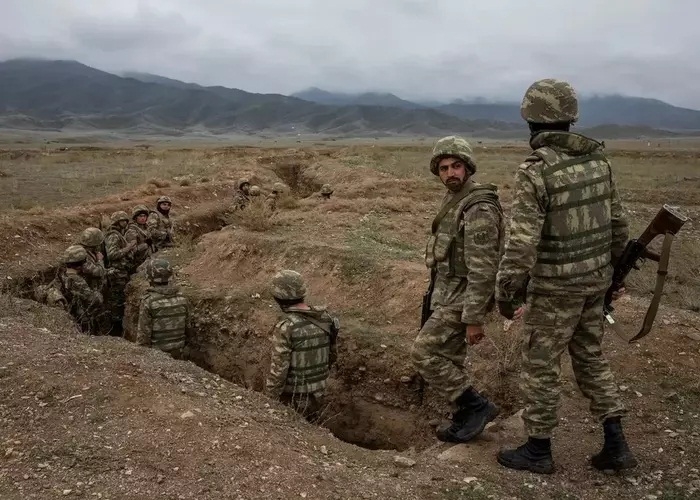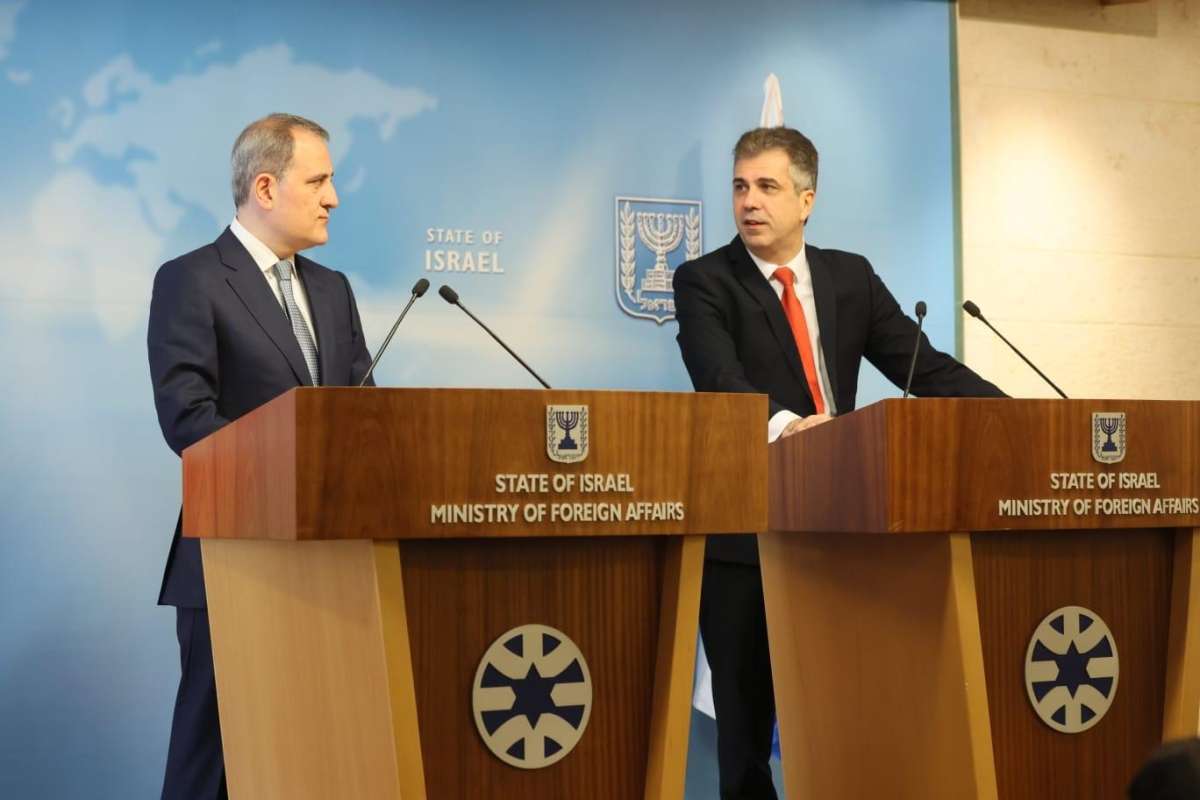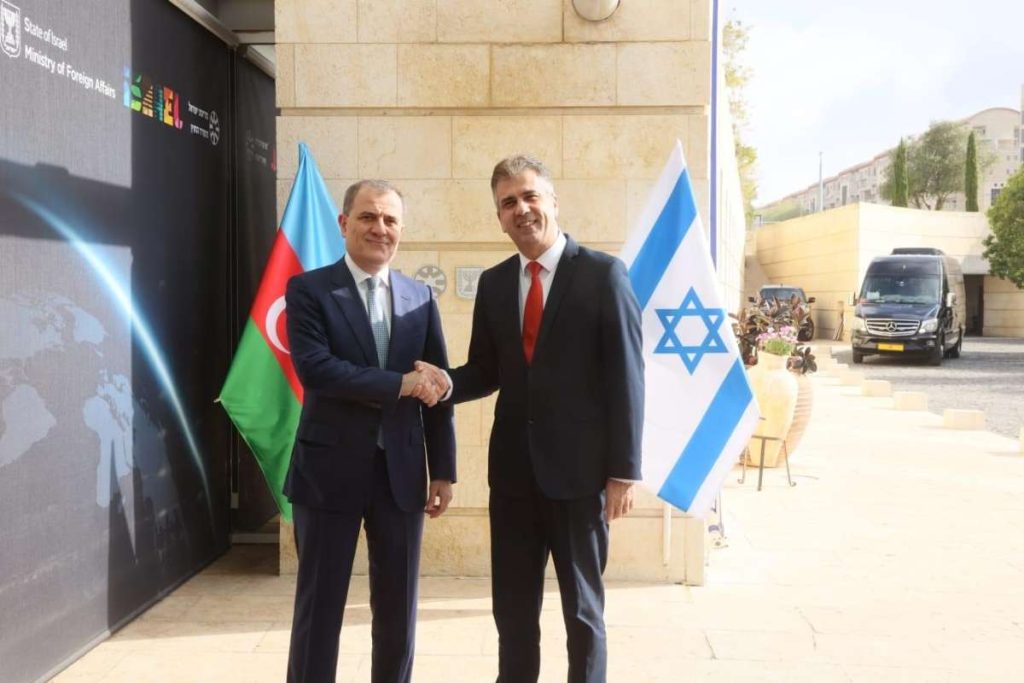The US Secretary of State said that the conflict “underscored the benefits that peace would bring to everyone in the region….reports Asian Lite News
Secretary of State Antony Blinken has held talks with Azerbaijani President Ilham Aliyev and Armenian Prime Minister Nikol Pashinyan on the possibility of concluding a peace treaty between the two states.
Blinken “welcomed President Aliyev’s commitment to conclude a durable and dignified peace agreement between Azerbaijan and Armenia,” reported TASS, citing one of the statements distributed by State Department Spokesman Matthew Miller.
The US Secretary of State said that the conflict “underscored the benefits that peace would bring to everyone in the region.” He also discussed US-Azerbaijan bilateral relations with Aliyev, “noted recent points of concern,” and touched on “opportunities to strengthen cooperation.”
Armenia and their neighbour, Azerbaijan, have been in constant opposition over the disputed region of Nagorno-Karabakh.
When Armenia took control of the Azeri region in 1993, the region was mostly inhabited by ethnic Armenians until 2023.
On September 19, tensions flared up again in Nagorno-Karabakh. Baku announced it was launching what it described as “local anti-terrorist measures” and demanded the withdrawal of Armenian troops from the region. Yerevan, in turn, said there were no Armenian forces in Karabakh, calling what was happening “an act of large-scale aggression,” Tass has reported.
Azerbaijan reclaimed the territory in late September after defeating separatist forces, extending gains made in 2020 when a Russia-brokered cease-fire allowed it to take over most of the territory that Armenia had seized in a yearslong war in the 1990s.
Since the recent assault, 120,000 ethnic Armenians have fled for their home country.
On November 18, at the fall session of the Organisation for Security and Co-operation in Europe (OSCE) Parliamentary Assembly in the Armenian capital, Prime Minister Pashiyan stated that Yerevan and Baku had been able to agree on the basic principles of a peace agreement.
Merely two days after this statement, at a press conference following talks with his Iraqi counterpart Abdul Latif Rashid, the Azerbaijani president said that he was waiting for a response from Armenia for peace proposals sent two months prior.
During the US Secretary of State’s conversation with Pashinyan, it is noted that Blinken “discussed US support for efforts to reach a durable and dignified peace agreement between Armenia and Azerbaijan.”
The top US diplomat reaffirmed their support for Armenia, “their sovereignty and territorial integrity,” as well as pointing to US “efforts to increase bilateral cooperation with Armenia.”
On September 21, representatives of Baku and the Armenian population of Karabakh met in the Azerbaijani city of Yevlakh “to discuss reintegration issues.”
The most likely option for the local ethnic Armenian population in Ngorno-Karabakh will be to consider the reintegration proposals and decide whether to remain or relocate to Armenia or other foreign states.
On September 28, Nagorno-Karabakh Republic President Samvel Shahramanyan signed a decree officially dissolving the unrecognised state, effective January 1, 2024, TASS reported.
US Secretary of State Antony Blinken is set to continue his diplomacy work by visiting Israel, the West Bank, Belgium, North Macedonia, and the UAE this week. (ANI)
Secy of State to return to Israel, West Bank
Secretary of State Antony Blinken will return this week to the Middle East as the U.S. hopes to find a way to extend a cease-fire in Gaza and get more hostages released, the State Department said Monday. It will be his third trip to the region since Israel’s war with Hamas began last month.
Blinken will travel to Israel and the West Bank after attending Ukraine-focused meetings on Tuesday and Wednesday in Brussels and Skopje, North Macedonia, where foreign ministers from NATO and the Organization for Peace and Security in Europe are gathering.
Israel has agreed to pauses in its military operations in exchange for the gradual release of hostages taken by Hamas during its Oct. 7 attacks on Israel. The agreement had been due to expire Monday but was extended for an additional two days, meaning the extension will be expiring just as Blinken is arriving in Israel.
White House National Security Council spokesman John Kirby said Monday the U.S. hopes to see the pause extended further, but it is dependent on Hamas continuing to release hostages.
In Israel and the West Bank, Blinken will “discuss Israel’s right to defend itself consistent with international humanitarian law, as well as continued efforts to secure the release of remaining hostages, protect civilian life during Israel’s operations in Gaza, and accelerate humanitarian assistance to civilians in Gaza,” State Department spokesman Matthew Miller said in a statement.
He said Blinken also will discuss the principles for a post-conflict Gaza, as well as the need to establish an independent Palestinian state and prevent the conflict from widening.
In the occupied West Bank, Blinken is expected to see Palestinian President Mahmoud Abbas. Blinken and other U.S. officials have said they believe the Palestinian Authority should play a significant role in governing post-conflict Gaza.
From Israel and the West Bank, Blinken will travel to the United Arab Emirates for discussions with regional leaders who will be in Dubai to attend the COP28 climate summit.
Blinken has been engaged in furious diplomacy to try to prevent the Gaza conflict from spreading, expand the provision of humanitarian aid to Palestinian civilians in the territory, secure the release of hostages and arrange for foreigners and dual nationals to leave Gaza overland to Egypt.
On each of his prior two trips, Blinken has traveled to Israel and Jordan multiple times. Between the two trips, he also made stops in Bahrain, Egypt, Iraq, Qatar, Saudi Arabia, Turkey and the UAE.
Blinken will arrive in Israel having just participated in an Organization for Security and Cooperation in Europe foreign ministers meeting in Skopje. Russian Foreign Minister Sergey Lavrov has said he plans to attend the OSCE meeting, possibly setting the stage for a U.S.-Russia confrontation there over Ukraine.
